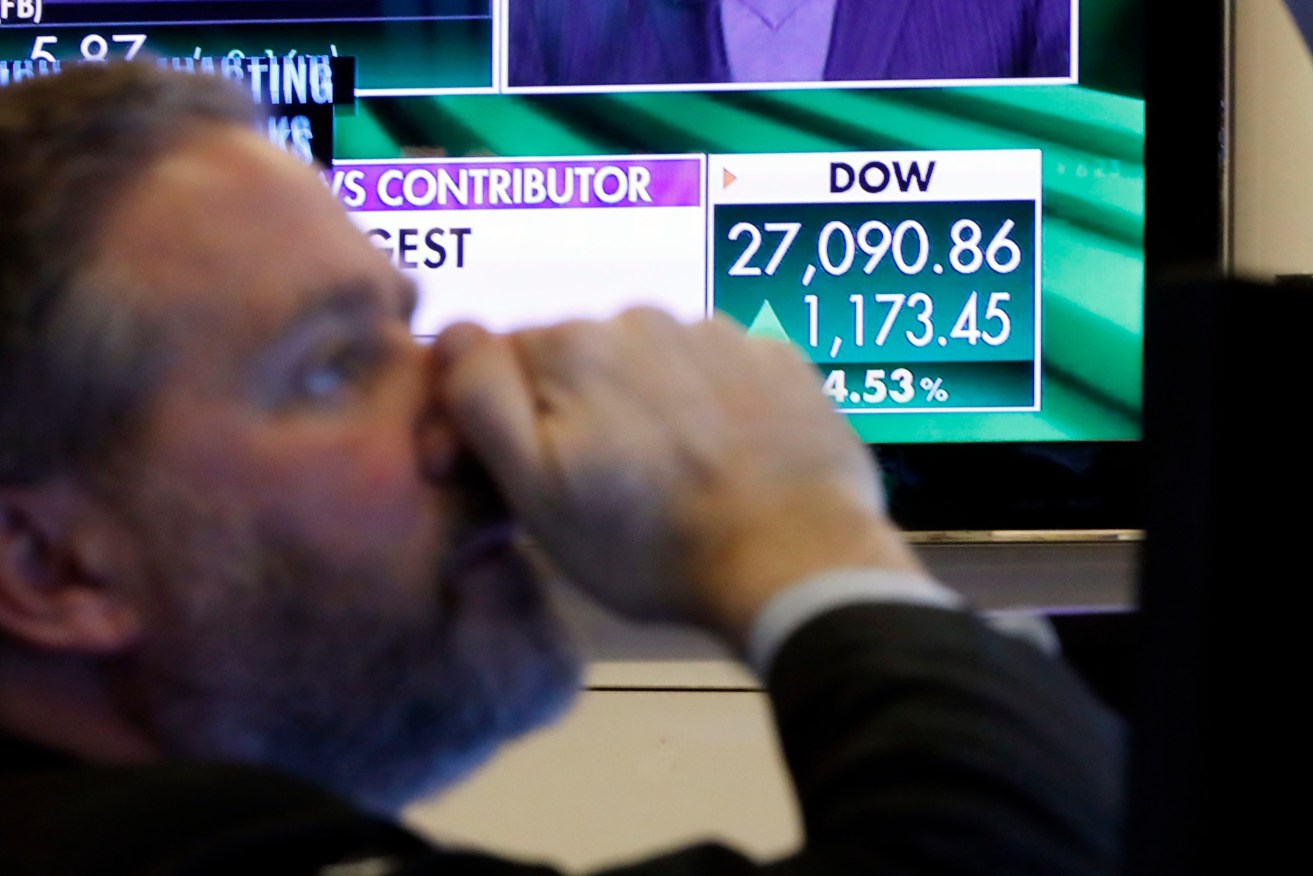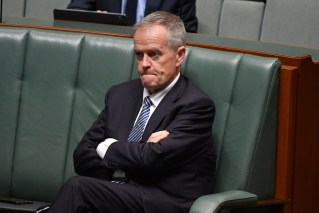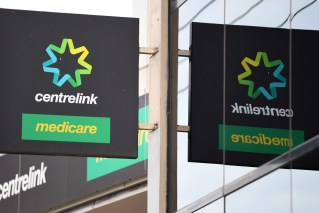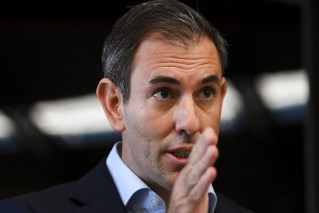Market pain eases after $10b stripped from value of Qld companies
The dramatic downturn in the markets has wiped more than $10 billion off the value of Queensland’s major public companies.


A television screen on the floor of the New York Stock Exchange shows the closing number or the DJIA, Wednesday, March 4, 2020. The Dow Jones Industrial Average soared more than 1,100 points, or 4.5%, on hopes for more stimulus measures from around the globe to fight the virus outbreak. (AP Photo/Richard Drew)
The Australian market came back to life this morning as central banks around the world acted to combat the impact of the coronavirus and Democrats in the US rallied around moderate presidential hopeful Joe Biden.
Australian stocks jumped more than 1.5 per cent at the start of trade after a big rally in US markets. The benchmark S&P/ASX200 was up 108.3 points, or 1.71 per cent, at 6,433.7 as all sectors rallied.
The resurgence in stocks will help offset more than $10 billion that has been wiped from the value of Queensland’s biggest listed companies since the start of the year as the bushfires combined with the virus and a generally weaker outlook to devastate values.
Since January 31 the biggest losers have been Suncorp (down $2.3 billion), Flight Centre ($1.4 billion), Star Entertainment (down $960 million) and ALS ($1 billion).
But a host of other companies such as New Hope, Aurizon and AP Eagers have lost hundreds of millions in their value as the public headed for the exits due to fears surrounding the impact of the coronavirus and bushfires on stocks. Corporate Travel Management has lost more than $800 million in value as it became the subject of shorting and a battle for control of the company.
Reversing the trend has been Domino’s (up $356 million) and NEXTDC (up $586 million).
Companies such as Flight Centre have had to readjust their earnings outlook as people opt out of travel plans and corporate conferences are cancelled. Even major events like the Melbourne Grand Prix face the prospect of Italian teams like Ferrari not being able to compete because of travel bans.
The global crisis is expected to force the Federal Government into a stimulus worth billions as the Reserve Bank estimated the virus has cut growth by 0.5 per cent.
While restaurants and cafes have been emptied in recent months they were already heading downhill before the virus hit and consumer confidence measured by ANZ and Roy Morgan is now at a five-year low.
The recent reduction in interest rates by the Reserve Bank has been seen as a help but not a solution and it now appears the market is expecting the next step will be tax cuts and quantitative easing which will mean the RBA will start buying government bonds.
In Queensland, economist Pete Faulkner of Conus Consulting said the state was relying exclusively on the public sector for growth and unless there is a pickup in private sector growth the economy will slide further.
Westpac economist Bill Evans said the bank had been arguing for some time that the Australian economy was weak even before the virus hit the economy and a fiscal stimulus was needed including bringing forward the 2022 legislated tax cuts.
“We think that is even more urgent today,’’ Evans said.
“We think cutting taxes will boost income which will boost demand and that’s a better way to boost investment rather than providing direct tax subsidies for investment because business don’t expect demand to pick up they won’t increase capacity even if there is some tax advantage in doing that.
“We are hopeful we will start to see development around tax cuts as a major response to the current situation.
“The RBA is likely to cut rates again in April to 0.25 per cent and that’s the low point the Governor identified last year when he said “we are not going to go negative’. At 0.25 per cent means that interest payments on banks’ excess reserves would be zero, so it’s a zero policy.
“So after April there will be no more scope to cut interest rates. We have long argued that quantitative easing would be the next step in policy and that would mean the purchase of government bonds and that will be important to hold interest rates down and keep pressure on the Australian dollar.’’












